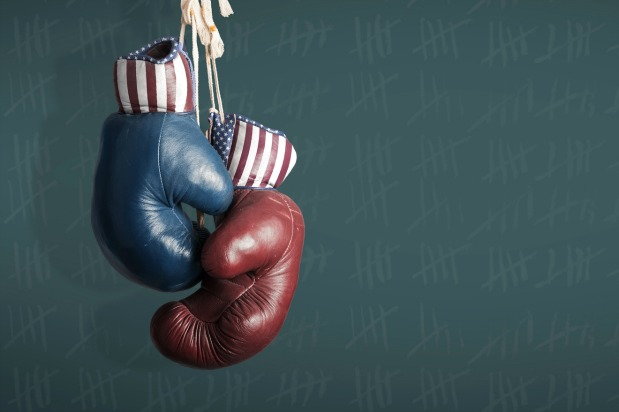Most of us have a friend or family member who always seems to drown in a swirling pool of chaos. Perhaps it is a partner who constantly tries to push your buttons to get you to react, or it’s a sibling who cannot seem to stay out of trouble. Maybe it's even yourself, and despite various resources, you continue to find ways to keep your world constantly buzzing with unnecessary drama.
Do people create drama in their lives so they have something to do? This is possible. But it may also go a bit deeper than simply a love of conflict—it could be a conflict addiction.
Signs of Conflict Addiction
A conflict addict can be characterized as a person who will risk everything for the thrill of an argument and the subconscious comfort they find in instability.
Take, for instance, the past few family gatherings that you have had that involved ending in arguments. imagine, everyone is standing around, sharing stories, laughing, and then Aunt Pam decides to tell your mother that her cooking is getting worse by the year… again. Of course, your mother takes the bait and starts firing back. The argument continues relentlessly until, finally, your mother walks away because that is the only way to end a conflict with a conflict addict. This isn’t just the first, second, or third time that Aunt Pam has ruined a social gathering or even a visit from a friend or relative. Aunt Pam is known to leave a destructive path of relationships behind her, and she’s still looking for more bridges to burn.
This behavior doesn’t just stay within the family gathering; however, this is essentially Aunt Pam’s entire life. Many of her family members may feel that she is just overly critical or jealous of those she surrounds herself with. In reality, she cannot form positive relationships simply due to her inability to not argue with someone. As a result, this behavior can lead to depression, anxiety, social dysfunction, and even substance abuse.
Often, someone who is conflict addicted may have had a lack of stable relationships their entire life. Instead, they view relationships as opportunities to satisfy the craving for the chaos they have become accustomed to.
Why Conflict Feels Good
What would make someone want to argue even during times of happiness and celebration?
Within seconds of engaging in conflict, adrenaline floods the brain due to the stressful environment that conflict brings.
If you win the conflict, your reward circuity in your brain will then tie this overwhelming feeling of accomplishment and confidence to the conflict itself.
Once the conflict is over, the feeling is gone, and your body goes through an adrenaline dump that mimics the symptoms of mild depression.
Just like drug addiction, your brain will then want more conflict.
Enemies can be made out of anyone or anything to get the same feeling from the first fight. Eventually, it doesn’t matter how big the enemy is, and the harder it is to defeat, the better because the euphoric feeling of adrenaline and confidence will last longer.
Sound familiar? It’s an addiction just like anything else.
Identifying a Conflict Addict
Do you know someone who is always looking for a fight or always in a bad mood? People afflicted with an addiction to the conflict are constantly searching for bigger enemies to fight to get that rush that they will never feel again, yet they fail to see the true enemy that lies within themselves.
The key to identifying a conflict addict is the pattern and duration of the person’s overpowering desire to engage in conflict.
Conflict addiction is fairly unknown to a large majority of the population, but becoming educated on the signs can allow you or someone you know to get help for the constant need to be in a state of chaos.
A Word of Caution
Conflict addiction can be just as dangerous as drug addiction because once addicted to conflict, people will intentionally put themselves in dangerous situations to feel the rush. People on the other side of the conflict can also be wildly unpredictable. They could engage in your conflict in a constructive manner, or they could harm you.
People with conflict addiction need help before they start a conflict with the wrong person.
If you or someone you know is seeking help for behavioral, alcohol, or drug addiction, please visit our directory of treatment centers or call 866-606-0182 to start on the path to recovery today.








